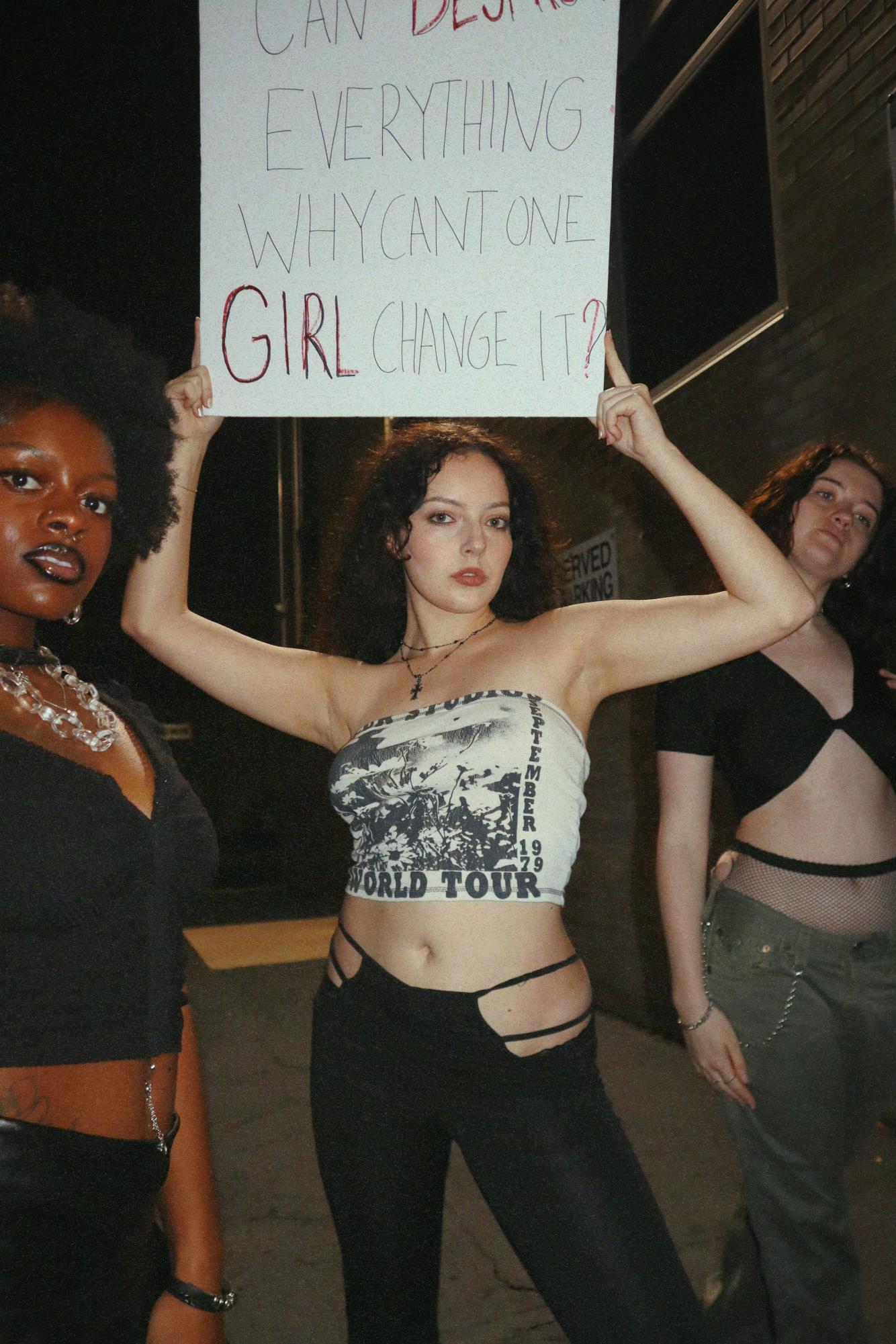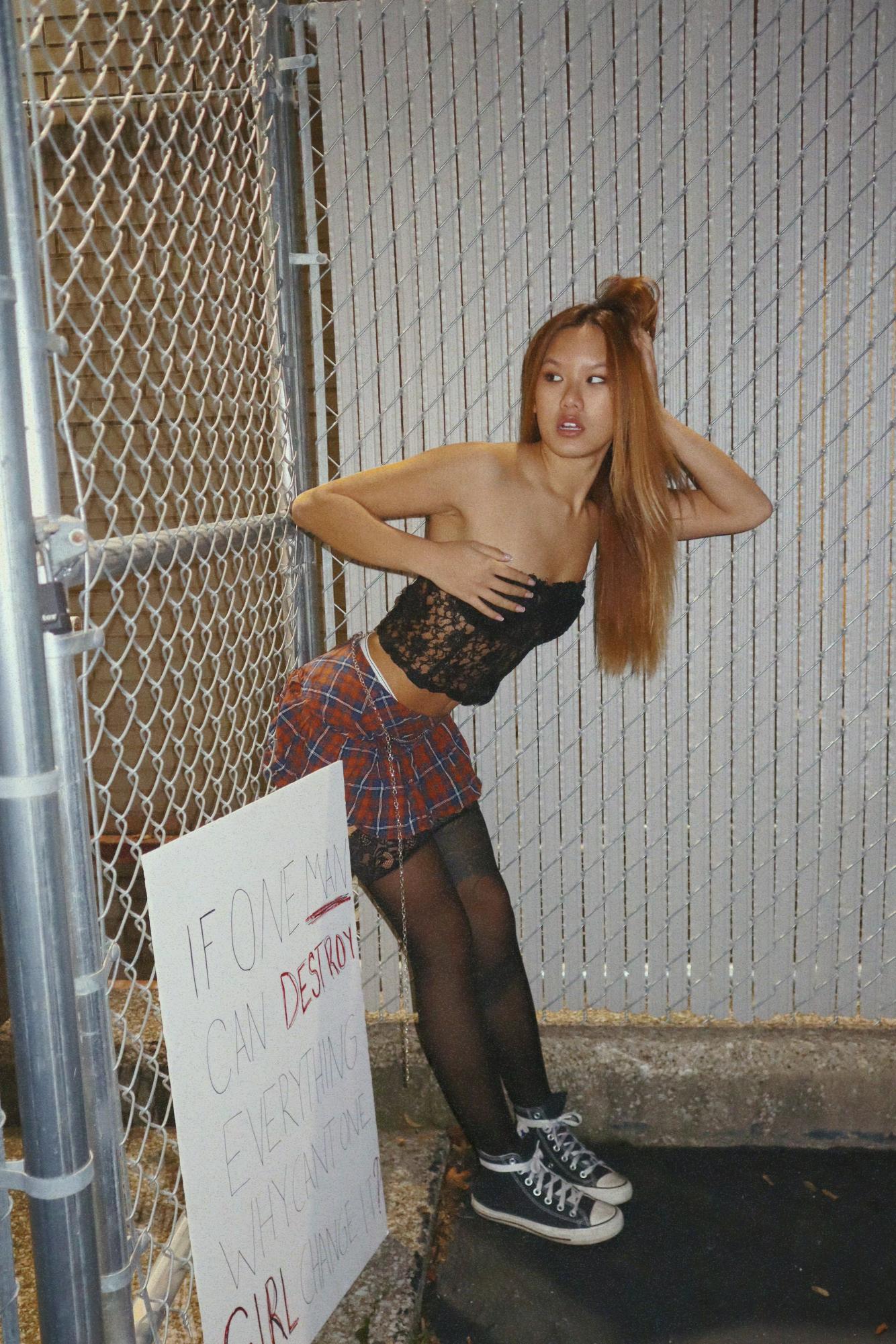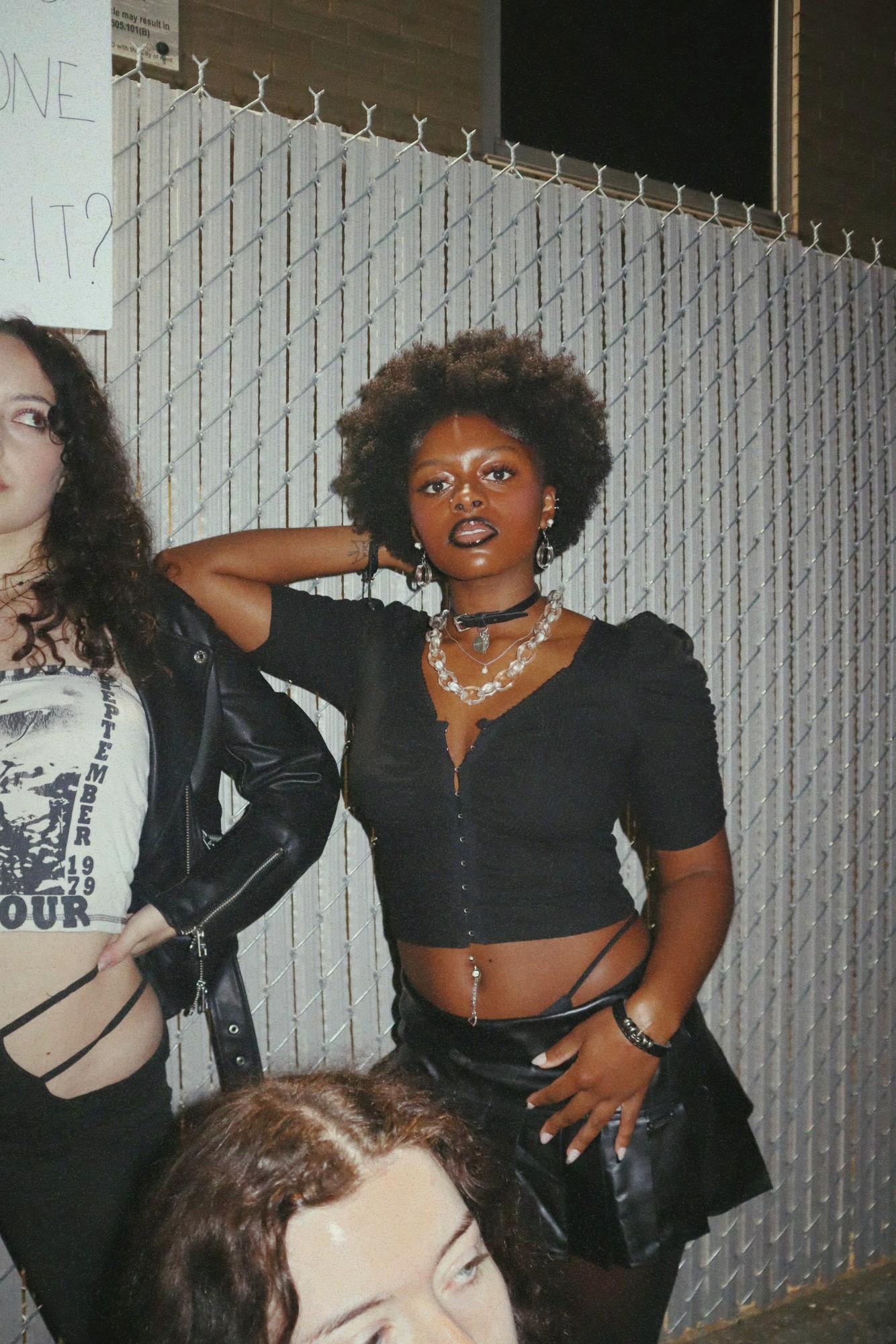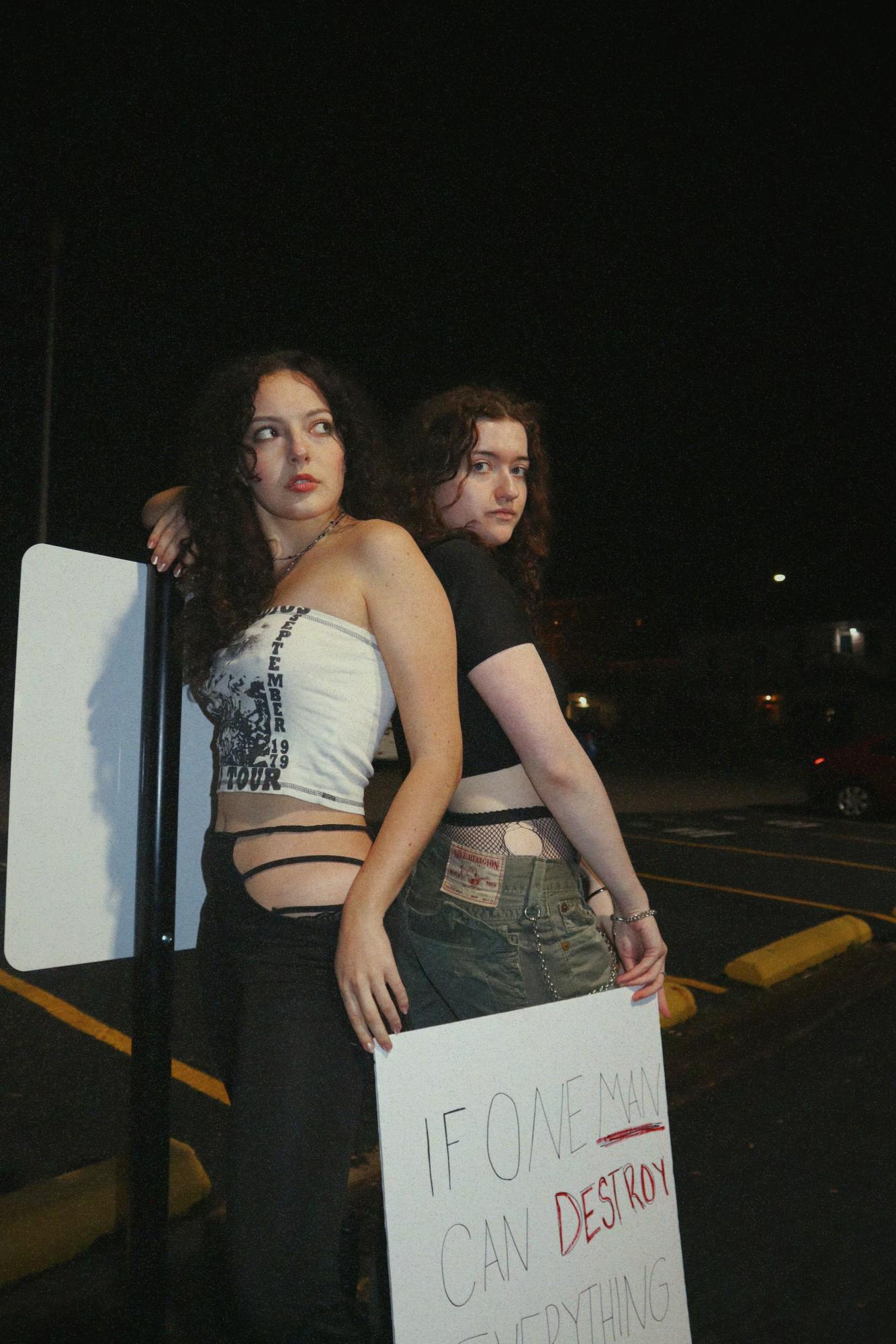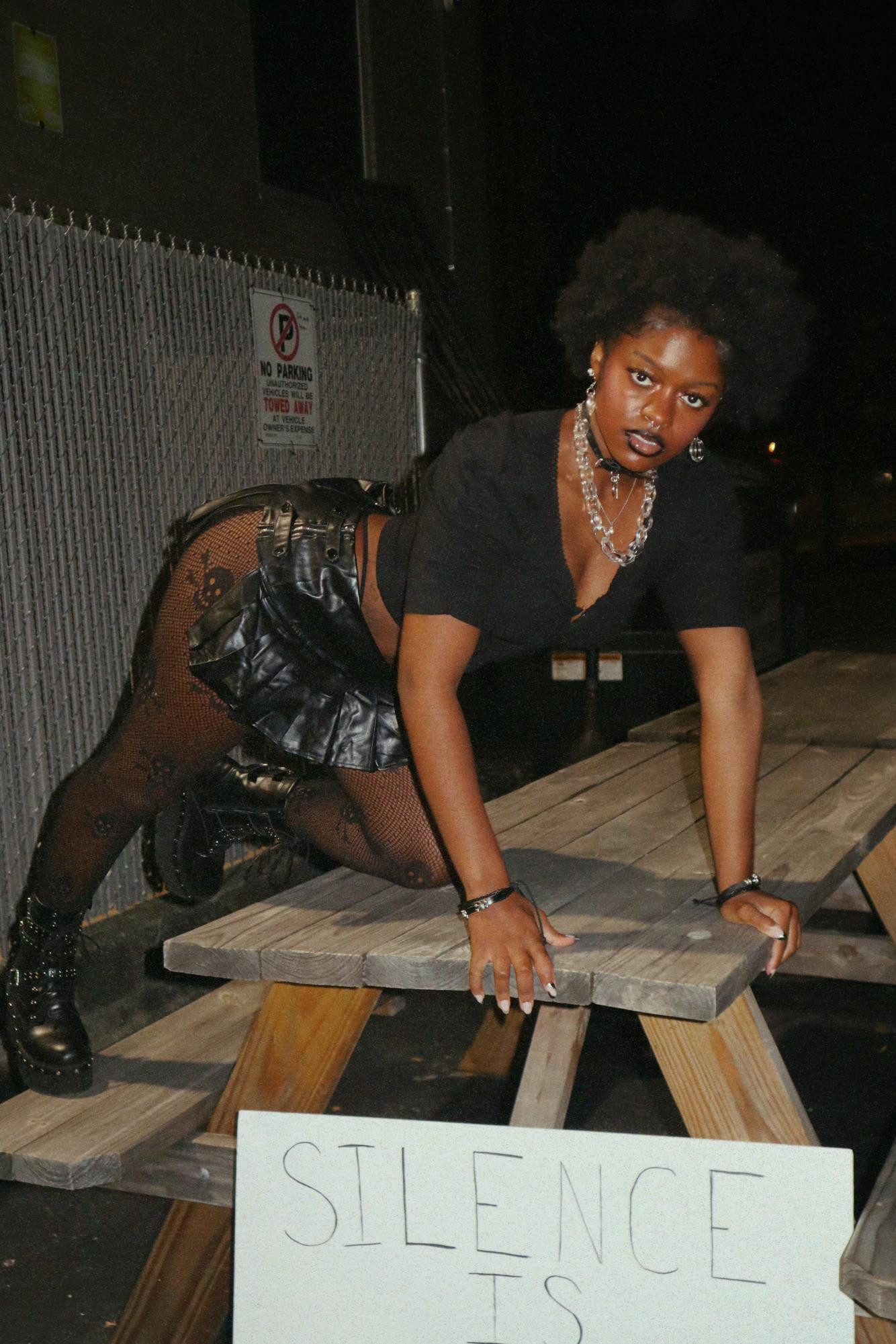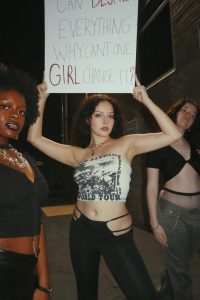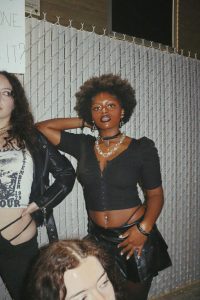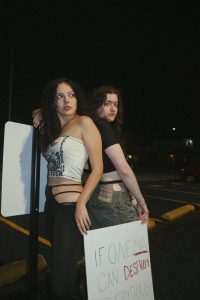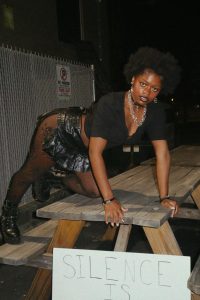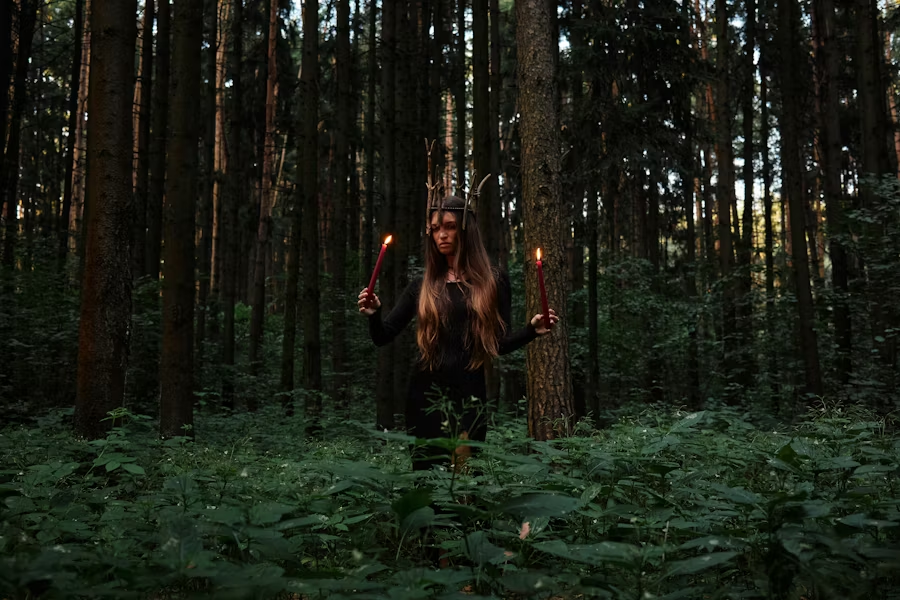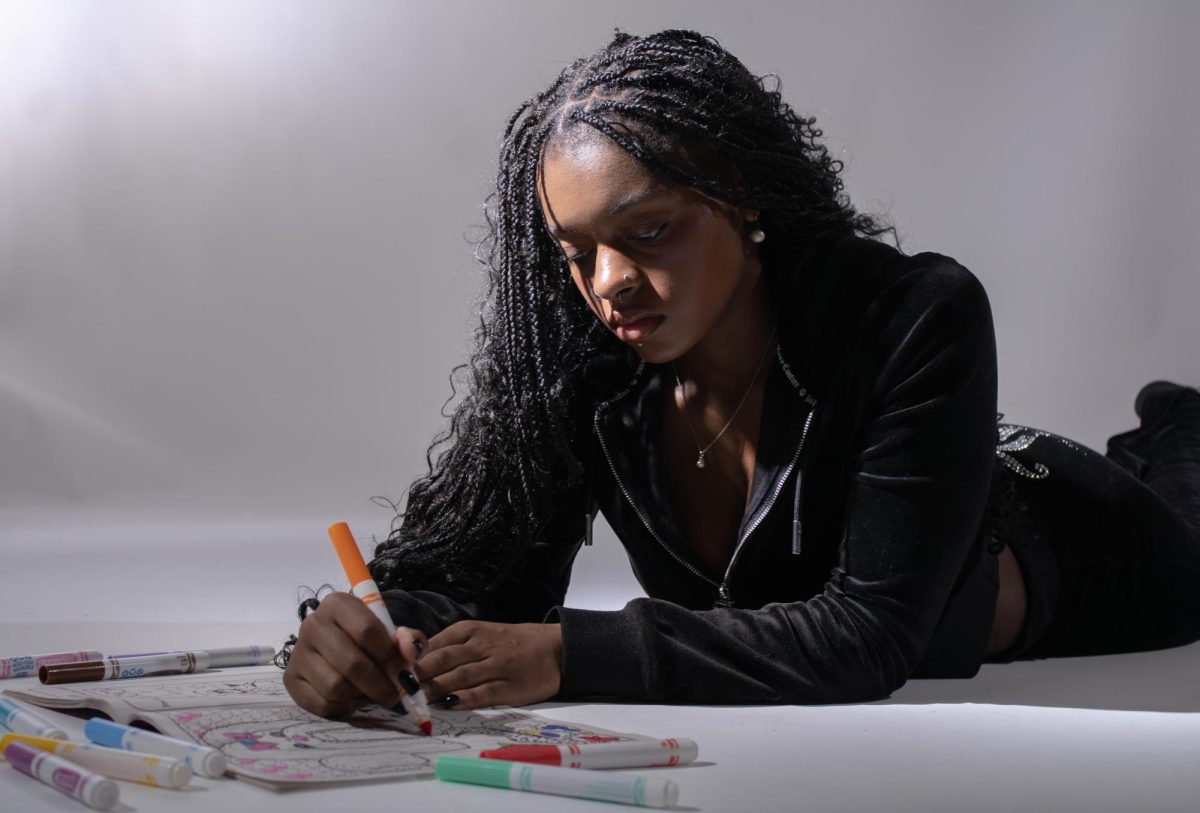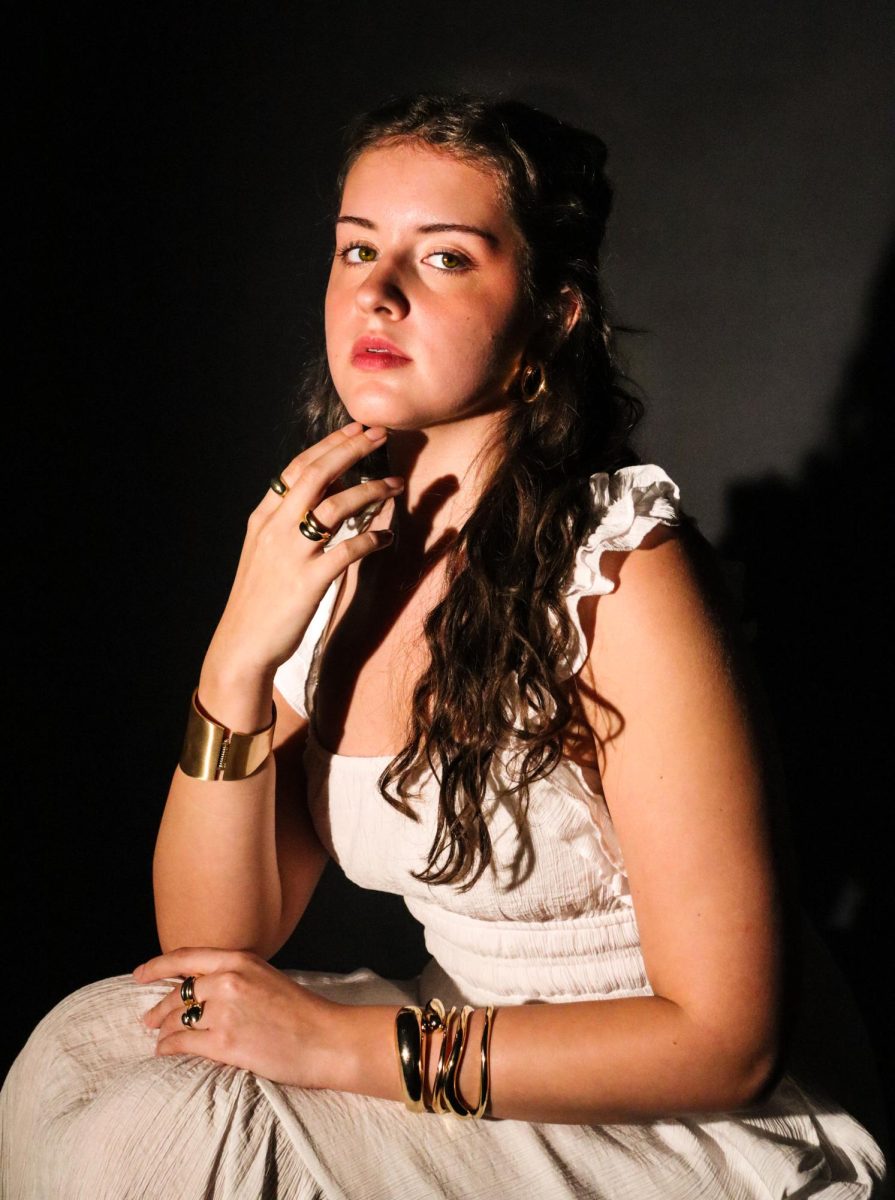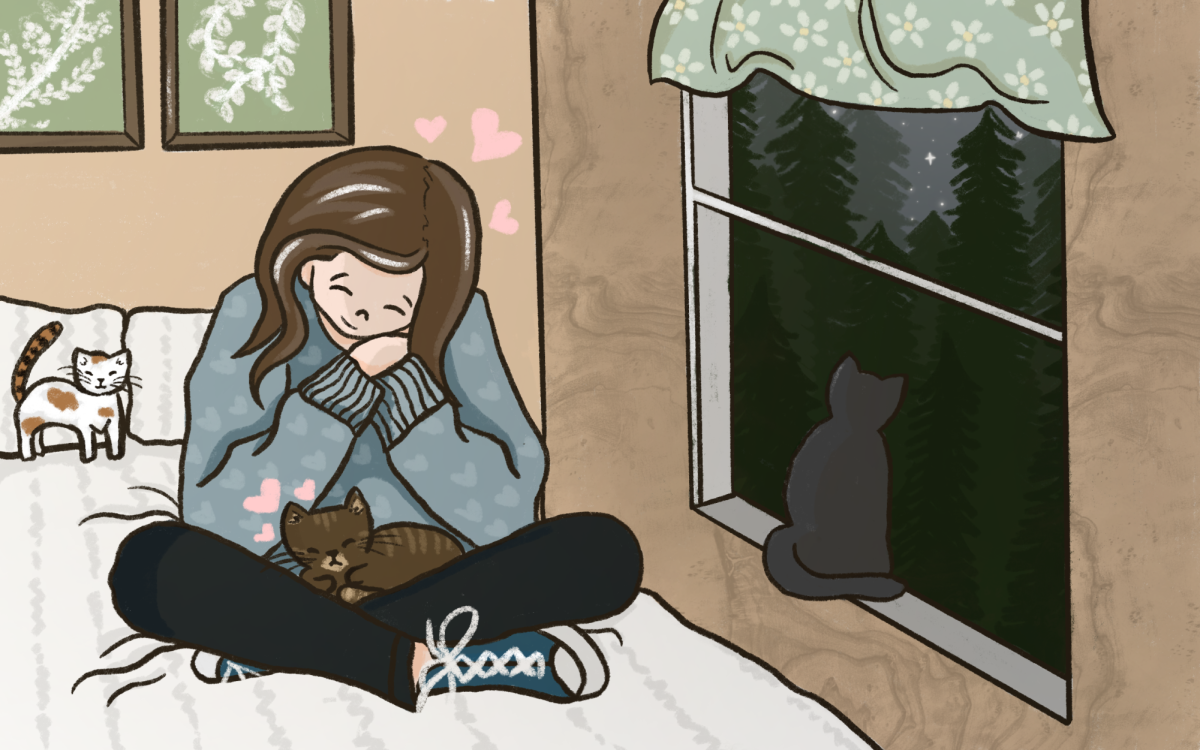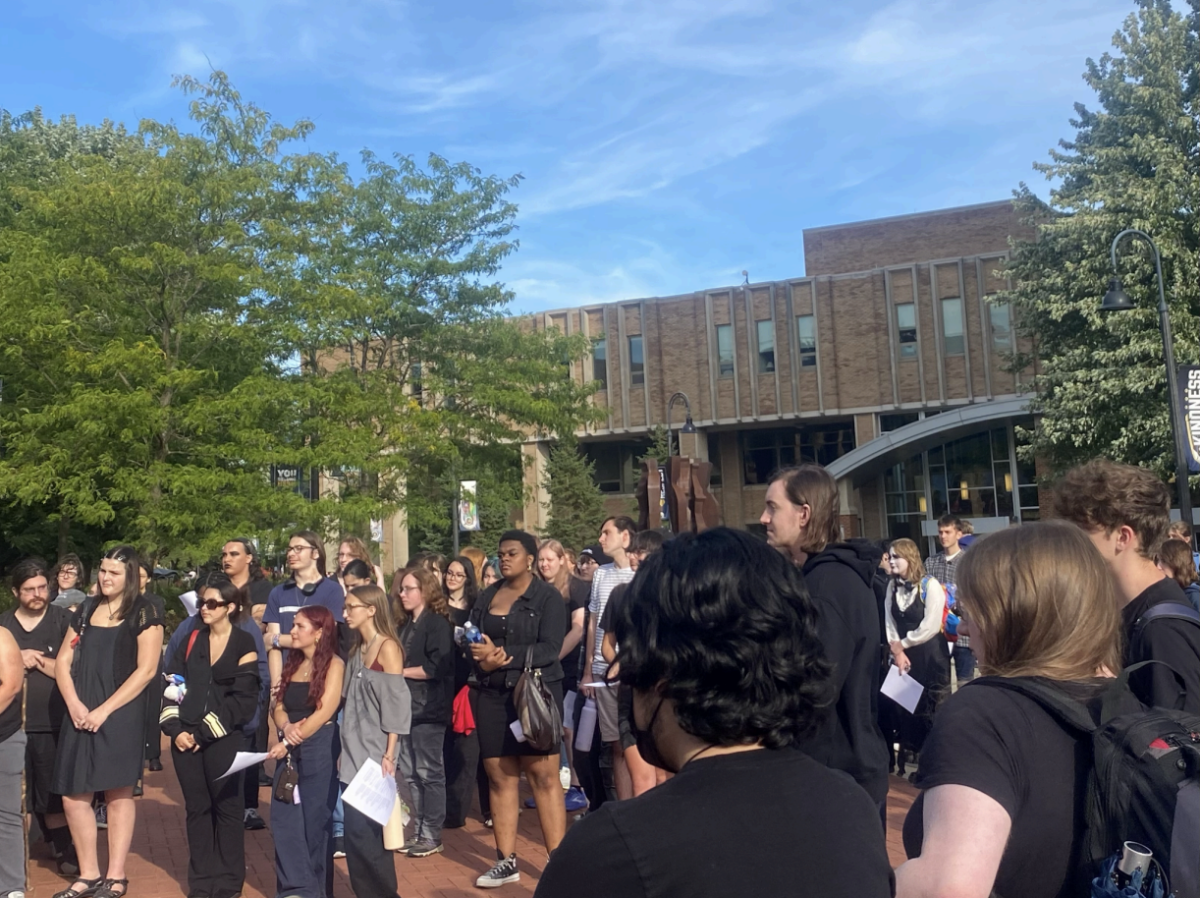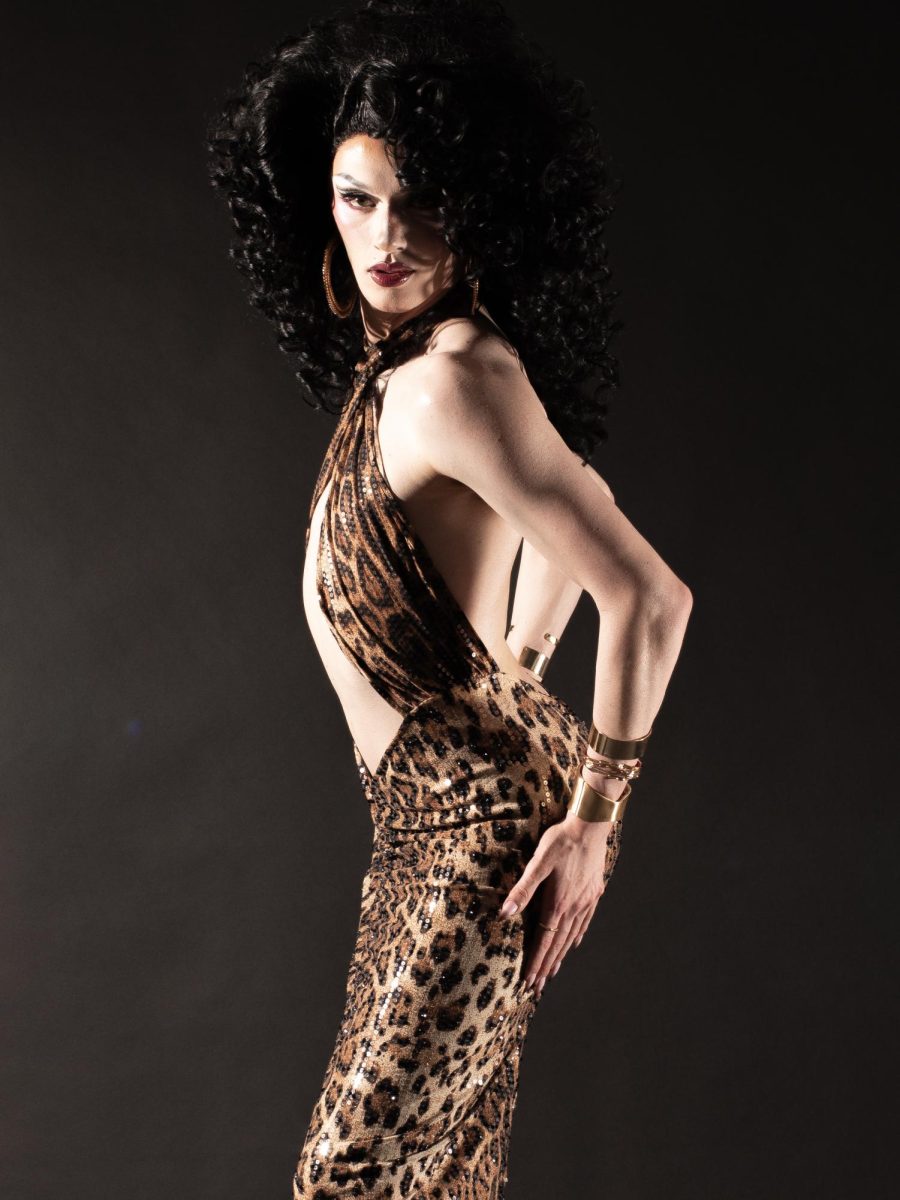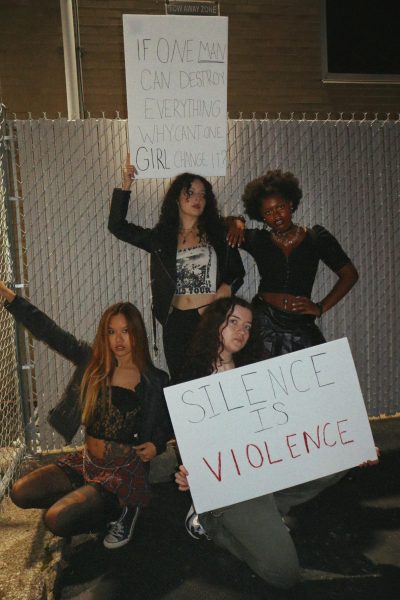
Models: Ally Friedly, Elena Cadle Mya Rose Spalding, Billi Aine Turner
Stylist: TyNaya McNeal
As we continue to reel and recover from the shocking news that Donald Trump has won the 2024 Presidential Election, people all over the internet have found solace in communicating with one another and vocalizing their anxieties and fears regarding the country’s future. There is a specific strength rising across communities of women who find comfort in their bond with female friends, mothers and sisters. Republican ideas like Project 2025, a right-wing manifesto detailing conservative agendas for the next presidential term, have women, people of color and members of the LGBTQ+ community worried about the status of their rights.
While these fears are valid and people have every right to be afraid and unsure, it is absolutely imperative that we continue fighting for visibility and respect, especially in times of uncertainty. It is so important to lift up your communities, use your voice and stay strong so people in power are forced to learn that minority voices are not going anywhere and deserve to be heard.
This statement from Politics and Rights Review reads, “Pop culture, in its essence, is a reflection of society’s pulse, capturing its hopes, anxieties, and dreams…It’s a mirror held up to society, echoing its concerns and catalyzing conversations on platforms that might otherwise remain apolitical.”
You’ll sometimes hear people complain that “everything is too political nowadays” to imply that movies, music, TV, fashion and art have no place referencing politics, but with the direct impact politics has on our livelihood, it would be impossible to separate it from the work we create. In dangerous political climates, we as a culture always have the incredible human ability to persevere and emerge stronger from times of struggle. Politics influences culture directly and the creation of art and media causes movements and encourages people to come together for their rights.
The overturning of Roe v. Wade in 2022 led to an increase in powerful feminist rhetoric across many facets of creative industries. Similar to movies like Netflix’s “Don’t Look Up,” a 2021 film about the threat of climate change, women have harnessed their creativity to spread their own political messages. Several female lead, written and directed horror movies were released post the overturning, detailing in-your-face body horror elements, pregnancy plot lines and religious undertones, reflecting the political state of a woman’s right to an abortion. Among these films are “Immaculate,” “The First Omen” and “The Substance” which all share a powerful message about women’s autonomy using demons and dark forces as thinly veiled metaphors for sexual abuse.
These issues have been relevant since the 1970s when Roe v. Wade was first enacted. “Alien (1976),” which launched one of the most well-known horror franchises of all time, details another story about a non-consenting pregnancy but this time through sci-fi alien impregnation. All of these movies earned remarkable critical and audience praise for their brutal and unapologetic message about the inhumane concept of forcing someone to give birth. Sometimes using a vessel like an alien or a demon to push the horror behind the truth is necessary to deliver a compelling message to an audience.
Female musicians as well as film directors often also rely heavily on political contexts to make their art. Recent examples include Billie Eilish’s 2022 EP “Guitar Songs” in which she references the overturning of Roe v. Wade directly in her song “TV.” The lyrics and music depict a feeling of helplessness and insignificance in an unpredictable and superficial world. Eilish performed the song in Nashville at one of her most recent performances of the “Hit Me Hard And Soft Tour” and expressed her disappointment and anxiety regarding Trump’s victory. She said to the crowd that the lyrics are “about the abuse that exists in this world upon women and a lot of the experiences that I have gone through and people I know have gone through,” and shared her fears for what’s next now that “someone who hates women so, so deeply is about to be the president of the United States of America.”
Other modern artists have political songs in their catalog expressing the importance of strength in the face of uncertain politics like Taylor Swift’s “Only the Young,” which details school shootings and the importance of young people voting. But, women have been singing about their rights for decades. Cyndi Lauper’s 1993 song, “Sally’s Pigeons,” tells the story of a woman who died from a back-alley abortion. In response to the 2022 overturning, Lauper re-recorded the song, as it still has relevance today.
Finally, the fashion industry has long been seeped in political history as fashion is art, and art is a reflection of the world and ourselves. According to a Vogue article on the subject, “‘Fashion functions as a mirror to our times, so it is inherently political,’ notes Andrew Bolton, Wendy Yu Curator in Charge of The Costume Institute at the Metropolitan Museum of Art. ‘It’s been used to express patriotic, nationalistic, and propagandistic tendencies as well as complex issues related to class, race, ethnicity, gender, and sexuality.’”
Fashion designers are not only tasked with creating luxury art suitable for runways, but they also influence trends at department stores, small boutiques and thrift shops. They create movements and motion through their work that ripple throughout society. During women’s suffrage, it was typical for participants to dress in all-white, high-collared outfits to make a statement against traditional standards for conservatism and purity in how women dress.
As history progressed, women’s movements became more about reclaiming femininity and sexuality. Currently, in response to threats like Trump’s presidency, women are celebrating hyper-feminine fashion and aesthetics like Barbie-core in partnership with the movie’s cultural impact. Women normalized wearing lots of blush, floral and fruity patterns, pink skirts and dresses and hair bows. This return to loving feminine things represents a return to the beauty of being a woman. Bimbo culture also resurfaced online with a celebration of Y2K icons like Paris Hilton and Lindsay Lohan inspiring women online to adopt some trends and attitudes from that time. Influencers like Chrissy Chlapecka encourage women to embrace their femininity, sexuality and individuality while also using her platform to promote social issues like Black Lives Matter, LGBTQ+ rights and women’s health.
It is okay if you still need some time to recover mentally from the election results, and you are not alone in that feeling. Whenever you start to feel lowest, however, remember it is so important to continue to fight and make your voice heard through whichever outlet you find the most comfort because art has so much power in this world. It unites communities and allows us to find solace with those who share our struggles. You matter and your voice still carries meaning, women and our culture are strong enough to survive this and we will always have each other when there’s nowhere left to turn.
Support Student Media
Hi! I’m Kayla Friedman, A Magazine’s editor-in-chief. My staff and I are committed to bringing you the most important and entertaining news from the realms of fashion, beauty and culture. We are full-time students and hard-working journalists. While we get support from the student media fee and earned revenue such as advertising, both of those continue to decline. Your generous gift of any amount will help enhance our student experience as we grow into working professionals. Please go here to donate to A Magazine.

